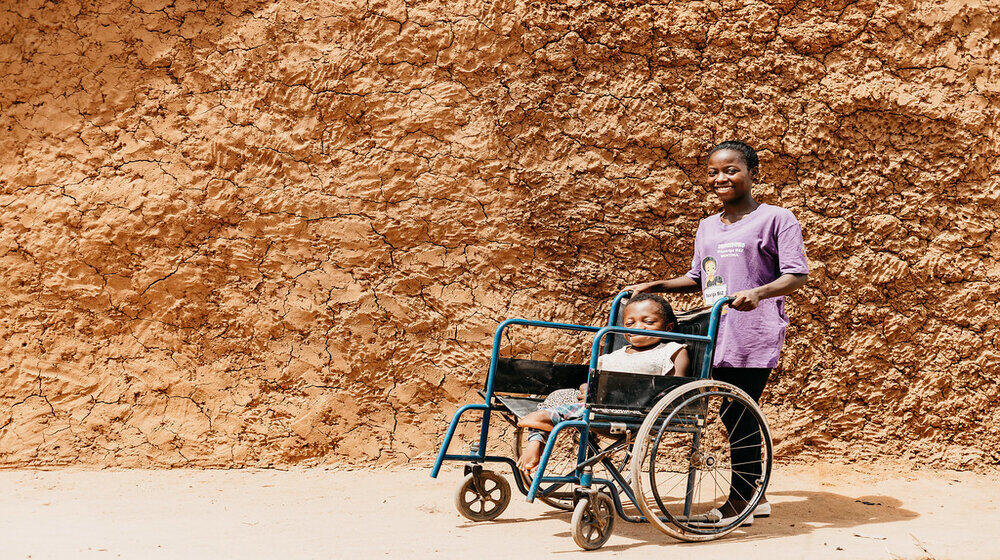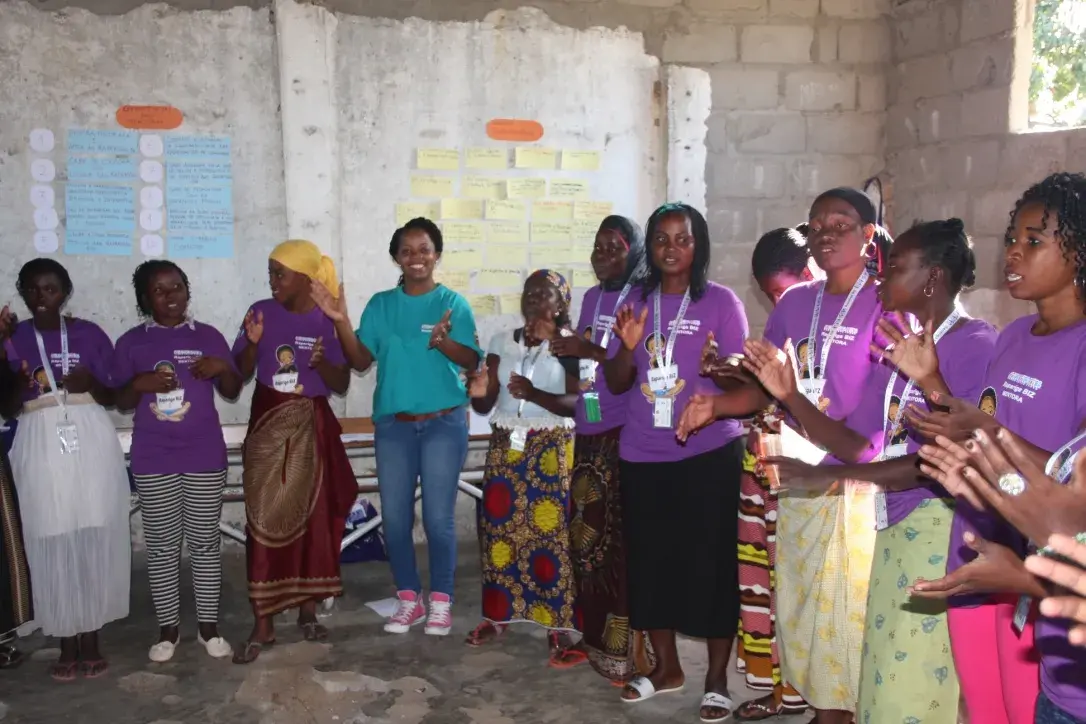“Even with support and encouragement from my family, I hid my disability because I was ashamed and afraid of being bullied.” - This is how Zainura Fabula, 17-years-old, described her everyday life before joining the girl’s empowerment programme ‘Rapariga Biz’.
Being invited by a mentor to join one of the safe spaces for girls and young women in her neighborhood changed her life. Zainura made friends and gained a sense of belonging within her group of peers; she realized that she can be happy no matter what her physical condition is. “My dream is to become a nurse and help others,” proclaims Zainura.
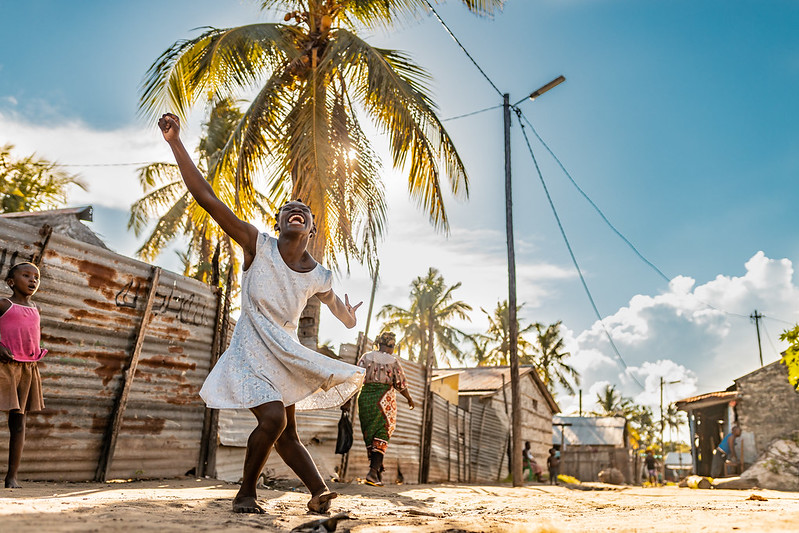
We Decide: Including and empowering young persons with disabilities
Zainura’s mentor is one of the 1,000 girls and young activists who have benefitted from a disability and inclusion training in Mozambique by the programme ‘We Decide’. A global UNFPA programme funded in 2016, We Decide is implemented in Mozambique and other countries to promote gender equality and social inclusion of young persons with disabilities and to advocate for a life free of violence and abuse. Globally, women with disabilities are up to 10 times more likely to experience sexual abuse than women who do not have a disability, and girls and young women with disabilities are particularly vulnerable to such abuse (UNFPA Guidelines: Women and Young Persons with Disabilities, 2018). With limited access to reproductive health information and services, girls with disabilities often lack capacity to make decisions about their own bodies and their futures.
Disability in the world and in Mozambique
It is estimated that more than one billion people worldwide, approximately 15% of the world's population, live with some form of disability. With a tendency toward higher disability rates among vulnerable groups, patterns of disability can vary according to environmental factors, including access to basic services, conflict, natural disasters, and road traffic (WHO, 2018).
In Mozambique, the 2017 National Census indicates that there are over 700,000 persons with disabilities in the country. This estimate includes adolescents and youth, most of whom live in rural areas where levels of poverty are high, and health, education, and related services may be scarce or non-existent, rendering them among the poorest and most vulnerable in society.
Girls with disabilities in youth peer support groups
Celmira Mendiates, 16-years-old, is another girl in the Rapariga Biz programme. She discovered that she was different from other girls at the age of 10 when she suffered bullying from other children who mocked and insulted her. Due to her disability, Celmira was excluded from participating in some activities at school, which saddened her and affected her outlook. However, after participating in one of the "safe space" sessions promoted by the Rapariga Biz program, she became aware of her rights and received support from peers. Today she dreams of becoming a successful doctor and making an impact in the field of medicine.
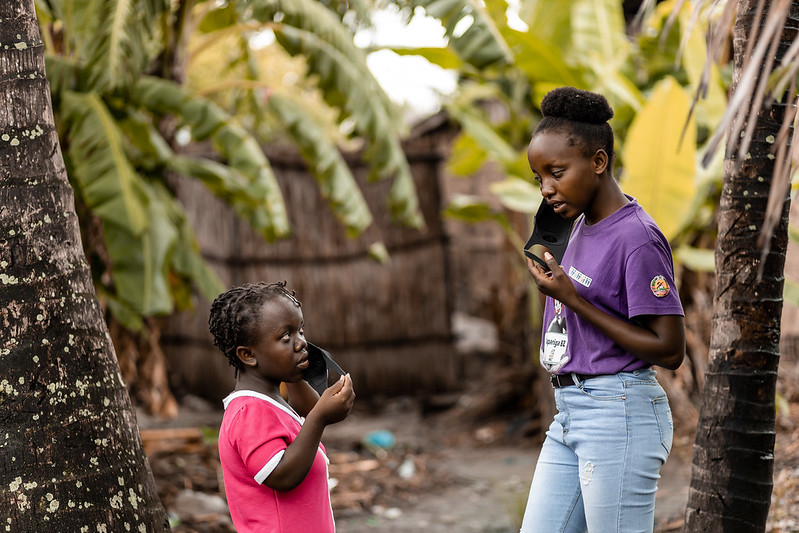
Joaquina Cairo, 17-years-old, who lives in Nicoadala in Zambezia Province is another empowered adolescent. Joaquina’s physical disability characterized by atrophy of the lower limbs prevents her from walking. Being part of the local mentorship group together with other girls her age has given her support and a sense of community which has made a positive difference in her life. “Joaquina is determined, she knows what she wants, she always goes after her dreams" says Joaquina’s mentor Ana Isac. “In the future, I dream of being a doctor”, Joaquina strongly affirms.
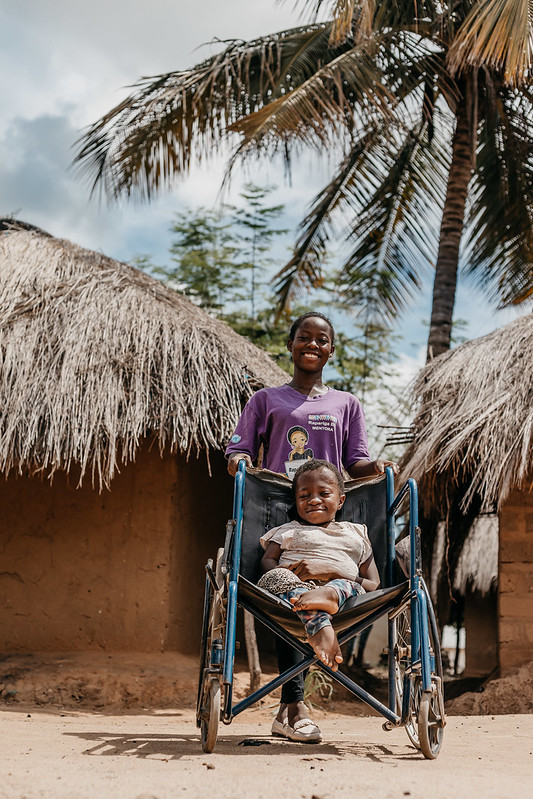
We Decide
The We Decide programme, implemented globally by UNFPA, is funded across all participating countries by the Government of Spain. The Ambassador of Spain to Mozambique, Mr. Alberto Cerezo said, “We are proud to support the We Decide programme, and young people with disabilities in Mozambique, as we join together to promote human rights and social inclusion. I commend the perseverance and courage of young people in this programme as they expand their knowledge and contribute to their communities.”
In Mozambique, the "We Decide" program is implemented by UNFPA in partnership with the Government of Mozambique and civil society organizations, including the Italian Association Amici di Raoul Follereau (AIFO) and the Forum of Organizations of Persons with Disabilities in Mozambique (FAMOD). Activities including disability and inclusion trainings of youth activists, government officials, health workers and other service providers are implemented in Manica, Cabo Delgado, Zambezia and Nampula provinces in collaboration with broader youth empowerment programs including Rapariga Biz and the Spotlight Initiative to End Gender-Based Violence.
Click here to watch the video “Invisible” on the We Decide programme in Mozambique.

